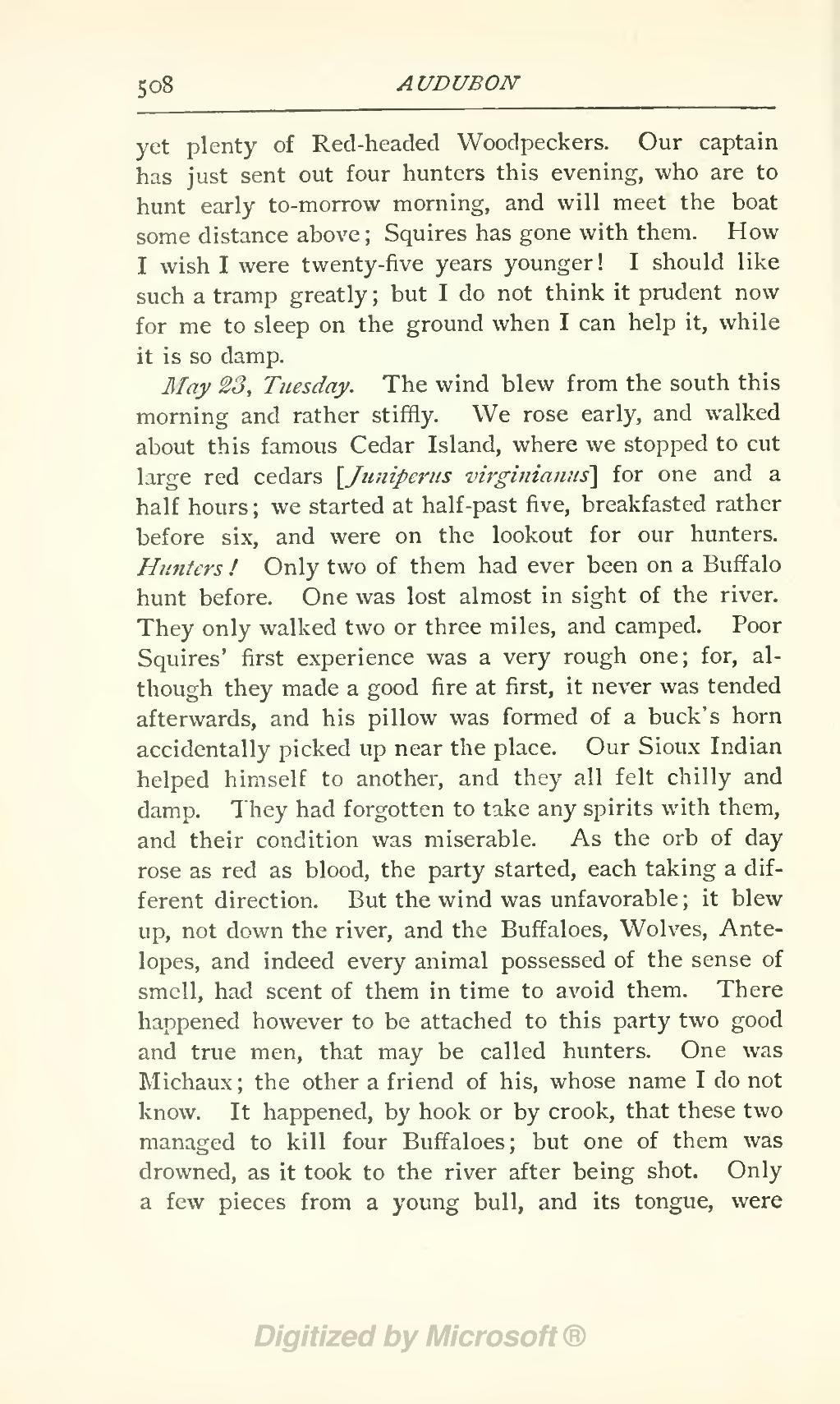yet plenty of Red-headed Woodpeckers. Our captain has just sent out four hunters this evening, who are to hunt early to-morrow morning, and will meet the boat some distance above; Squires has gone with them. How I wish I were twenty-five years younger! I should like such a tramp greatly; but I do not think it prudent now for me to sleep on the ground when I can help it, while it is so damp.
May 23, Tuesday. The wind blew from the south this morning and rather stiffly. We rose early, and walked about this famous Cedar Island, where we stopped to cut large red cedars [Juniperns virginianus] for one and a half hours; we started at half-past five, breakfasted rather before six, and were on the lookout for our hunters. Hunters! Only two of them had ever been on a Buffalo hunt before. One was lost almost in sight of the river. They only walked two or three miles, and camped. Poor Squires' first experience was a very rough one; for, although they made a good fire at first, it never was tended afterwards, and his pillow was formed of a buck's horn accidentally picked up near the place. Our Sioux Indian helped himself to another, and they all felt chilly and damp. They had forgotten to take any spirits with them, and their condition was miserable. As the orb of day rose as red as blood, the party started, each taking a different direction. But the wind was unfavorable; it blew up, not down the river, and the Buffaloes, Wolves, Antelopes, and indeed every animal possessed of the sense of smell, had scent of them in time to avoid them. There happened however to be attached to this party two good and true men, that may be called hunters. One was Michaux; the other a friend of his, whose name I do not know. It happened, by hook or by crook, that these two managed to kill four Buffaloes; but one of them was drowned, as it took to the river after being shot. Only a few pieces from a young bull, and its tongue, were
